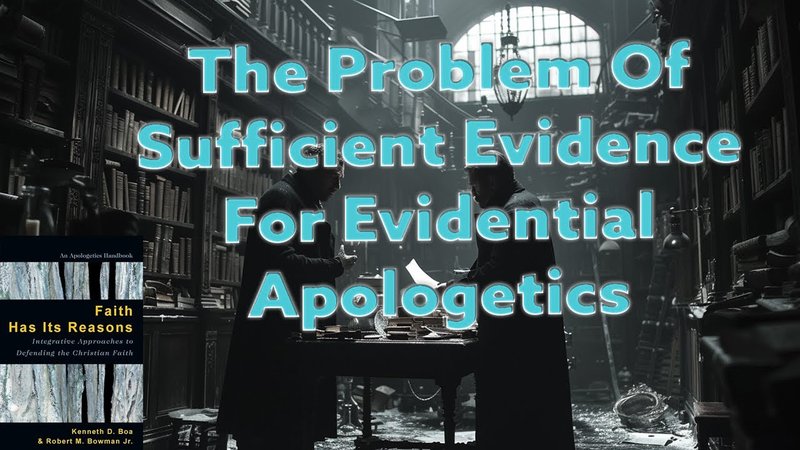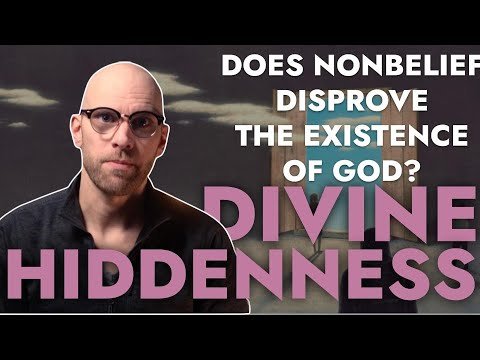· Apologetics > Apologetics Basics > Arguments · 4 min read
Biblical Guide to Mastering Evidential Apologetics: Strengthen Your Christian Faith
Explore the power of evidential apologetics in defending the Christian faith. Learn how evidence and reason can strengthen beliefs in this enlightening article.

Evidential Apologetics
Evidential apologetics is a method of Christian apologetics that focuses on presenting positive evidence in support of the truth of Christianity. This approach seeks to provide reasons and arguments that demonstrate the credibility and plausibility of Christian beliefs. It emphasizes the use of historical and scientific evidence, archeology, fulfilled messianic prophecy, and miracles to establish the truth of Christianity.
Why This Matters: Evidential apologetics is important because it provides a rational and logical framework for defending the Christian faith. By presenting evidence that supports the claims of Christianity, evidential apologists seek to remove intellectual objections and doubts, making it easier for people to consider and accept the truth of Christianity.
Think About It: When engaging with skeptics or those who doubt the validity of Christianity, it can be helpful to present evidence that supports the claims of the faith. Evidential apologetics provides a way to address intellectual barriers and demonstrate that Christianity is a reasonable and intellectually coherent belief system.
Historical Evidence
Evidential apologists place significant emphasis on historical evidence to support the truth of Christianity. They argue that by examining historical documents and events, we can establish the credibility of key Christian claims, such as the bodily resurrection of Jesus Christ.
Why This Matters: Historical evidence helps us understand the reliability and accuracy of biblical accounts. By examining historical sources from the time period, we can gain confidence in the accuracy of the biblical narratives.
Think About It: Just as we trust historical accounts to learn about other ancient events and civilizations, we can apply the same standards to biblical history. The historical evidence for Jesus’ life, death, and resurrection provides a solid foundation for our faith.
Miracles as Evidence
Evidential apologists also utilize miracles as evidence for the existence of God and the truth of Christianity. They argue that supernatural events, such as the resurrection of Jesus, serve as signs and confirmations of God’s existence and intervention in the world.
Why This Matters: Miracles provide powerful evidence for the existence of a supernatural realm and the involvement of a higher power in human affairs. They offer a tangible demonstration of God’s power and presence.
Think About It: Miracles challenge our naturalistic worldview and remind us that there may be realities beyond our scientific understanding. They invite us to consider the possibility of a God who can intervene in our lives and perform extraordinary acts.
The Resurrection
The bodily resurrection of Jesus Christ is a central focus for evidential apologists. They argue that the historical evidence for the resurrection is strong and provides compelling support for Christian claims.
Why This Matters: The resurrection of Jesus is the cornerstone of Christianity. It validates His claims, confirms His deity, and serves as the ultimate proof that He is the Son of God.
Think About It: The resurrection is not just a theological concept; it has significant historical implications. The evidence for the empty tomb, the post-mortem appearances of Jesus, and the transformation of His disciples provide compelling reasons to believe in the resurrection.
Interpretive Framework
Evidential apologists highlight the importance of interpreting the significance of Jesus’ resurrection within its proper context. They argue that Jesus and His apostles understood His resurrection as validation of His claims and endorsement of His ministry.
Why This Matters: Understanding the interpretive framework of Jesus’ resurrection helps us grasp its significance and impact on Christian theology. It provides a lens through which we can interpret Jesus’ teachings and understand the implications of His resurrection.
Think About It: If we accept the bodily resurrection as a historical fact, we are compelled to grapple with its implications. It affirms Jesus’ divine nature, validates His radical claims about Himself, and establishes Him as the ultimate authority on matters of faith and salvation.
Naturalistic Explanations
Evidential apologists address naturalistic theories that attempt to explain away the evidence for the resurrection of Christ. They argue that these explanations are inadequate and fail to account for the historical data and eyewitness testimonies.
Why This Matters: By refuting naturalistic explanations, evidential apologists demonstrate the strength and reliability of the evidence for the resurrection. They show that alternative theories do not stand up to scrutiny and reinforce the credibility of the Christian claims.
Think About It: It is important to critically evaluate alternative explanations for the resurrection. By examining the evidence and considering the weaknesses of naturalistic theories, we can strengthen our confidence in the truth of Christianity.
In summary, evidential apologetics provides a robust framework for defending the truth of Christianity through historical and scientific evidence, miracles, and the examination of key claims such as the bodily resurrection of Jesus Christ. By presenting compelling evidence, evidential apologists seek to remove intellectual obstacles and provide a rational basis for faith.



